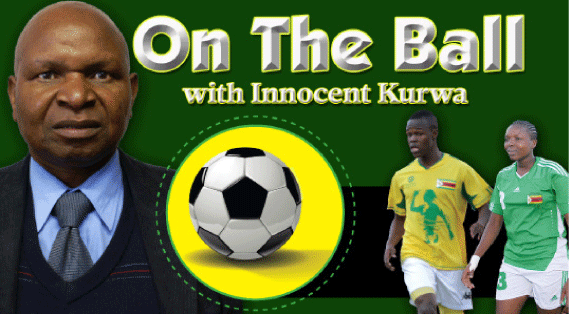
ONE of the big international football stories in the past week with a bearing on Africa — including Zimbabwe — was that of Joseph Minala a Lazio player whose age has been questioned to such an extent the Italian club has threatened to take legal action against those who continue to query the age of their player who comes from Cameroon.
Lazio play in Italy’s top league, the Serie A and the player at the centre of the row is said to be a teenager aged 17 years but whose age has been questioned after the player posted his photographs on social networks.
In a follow-up article BBC Sport says that while age cheating is found in many parts of the world, it is particularly rampant in Africa with countries like Nigeria, Ghana and Kenya being among the main culprits.
Zimbabwe is not mentioned in the article, but the key issue in our case is that there is certainly some degree of age cheating in this country, especially in football.
I dare say it is particularly rampant at school level and is especially noticeable when schools compete in various inter-schools competitions.
Among the most common ways in which age cheating is practised is allowing students talented in football to remain in a school repeatedly — repeating classes or fielding players who recently completed their studies at the school, but have not yet moved on in life.
One needs to attend some of the inter-schools matches to see that some of the players are obviously older than they are given or purported to be! So schools should be the starting point in Zimbabwe’s part in fighting age cheating.
- Chamisa under fire over US$120K donation
- Mavhunga puts DeMbare into Chibuku quarterfinals
- Pension funds bet on Cabora Bassa oilfields
- Councils defy govt fire tender directive
Keep Reading
It is necessary as a country for us to fight age cheating rather than indulge in it in the hope and desire to win, be this at schools level or in international competitions. There are several ways in which Zimbabwe could play a part in helping fight age cheating.
Ethical conduct and high morals should be uppermost when we hold leadership positions that bestow upon us the right to select teams at whatever level. In other words, as the sports master of a school one should remain ethical and desist from the urge to win at all costs, especially by fielding ineligible people, say those that have left school or are over a given age in age-group competitions.
Ethical behaviour, for some reason, is inherently linked to one’s morals. Some people are likely to disagree with this intimation but when an individual is of unquestionably high morality they are less likely to engage in unethical practices.
The ethical and moral consideration extends to club management as well as national team selection.
Those who manage clubs can help in the fight against age cheating by ensuring that they have the correct players in age-group teams, say Under-12, Under-17, Under-19, etc. Quite often these people allow players clearly over the upper-limit in these teams, especially if such players help the team win.
In other cases this bad practice is perpetrated to give a chance to friends and relatives so that they can get a living. Times are hard, it is admitted, but such practice does not help both the ‘beneficiary’ and perpetrator in the long run – it is likely to be uncovered at one stage or another, bringing embarrassment to both parties.
Those responsible for selecting national teams should also uphold unquestionable ethical behaviour and ensure that only eligible players are included in closed age-group teams. In the past players over a given age limit have been included in squads but, fortunately, these were dropped before international matches for fear that the stringent screening carried out at these matches would expose these age cheats.
The football authorities should also seek assistance from bodies like Fifa in financing the procurement of equipment for magnetic resonance imaging (MRI) so that age screening is compulsory at all age-group competitions, including inter-schools tournaments.
Fifa has already introduced MRI age screening and should surely be happy to assist its member states to fight age cheating.
One avenue that allows or abets age cheating is apparently simply one not knowing their date of birth. Luckily this should be a very small problem, if at all, in Zimbabwe given our high literacy rate – the country is among the top three countries with the highest literacy rates on the continent.
The authorities that issue birth certificates also have a part to play in fighting age cheating as another avenue for age cheating is simply obtaining a birth certificate more than once. Steps should be taken to weed out people trying to get a second birth certificate and when such people are unmasked they should be punished in a manner that dissuades others from trying this in future.
Congratulations to both How Mine and Dynamos for progressing to the next round of their respective African continental competitions at the weekend.
How Mine meet another island team in the next round when they clash with ASSM Elgeco Plus of Madagascar — just off the eastern Mozambican coast, while Dynamos stay in the sub-region when they clash with AS Vita of the Democratic Republic of Congo.











